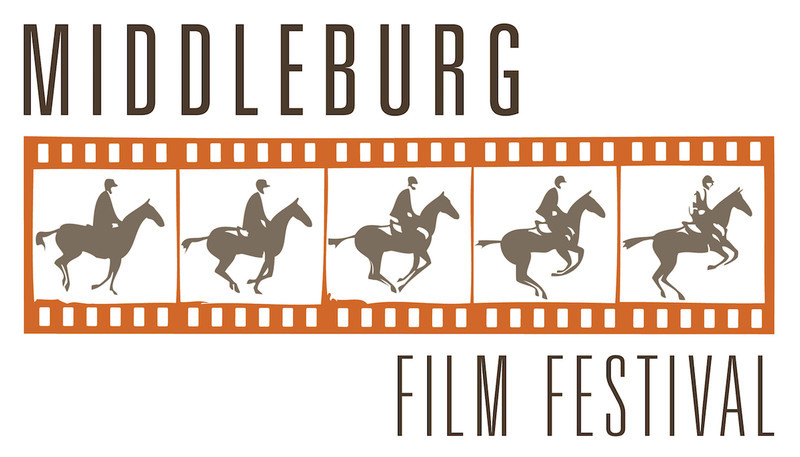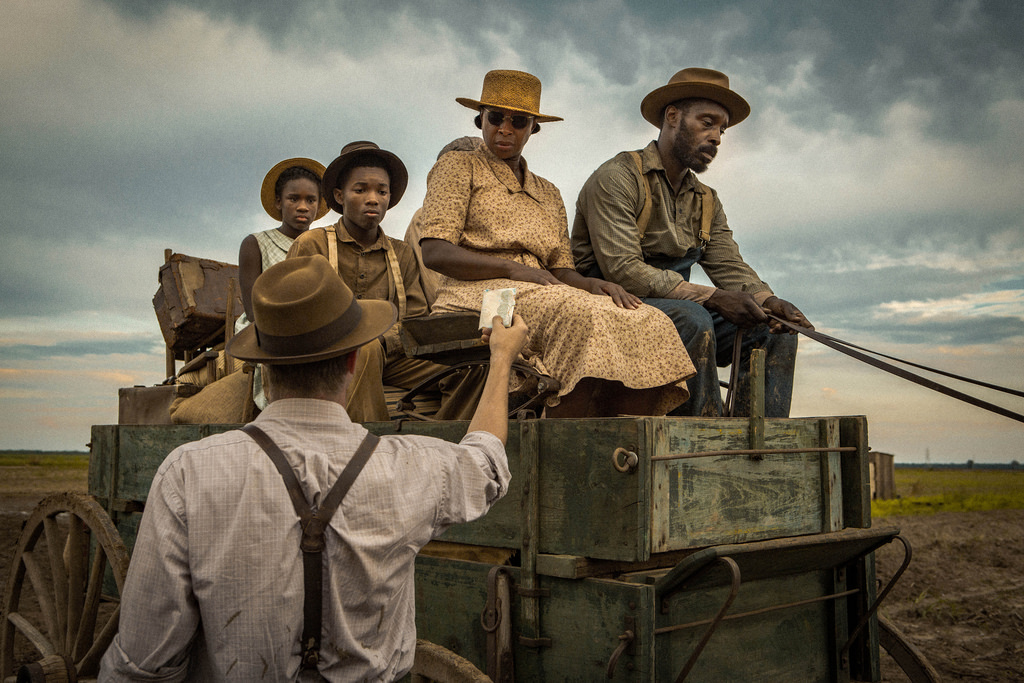What a difference a year makes. When I arrived at last year’s Middleburg Film Festival, awash as usual in Mother Nature’s autumnal splendor in the heart of Virginia’s wine and horse country, I was visually assaulted by a big old honking “Trump for President” sign as the two-lane road curved into the town.
Yes, the 700 or so wealthy locals—many of whom support this meticulously curated four-day fest, whose fifth edition came to a close on Sunday—primarily are members of the crimson part of red, white and blue.
But judging by this year’s audience reactions to the sold-out showings of both Martin McDonagh’s “Three Billboards Outside Ebbing, Missouri” and Dee Rees’ “Mudbound,” maybe sentiment concerning matters involving the verbal and physical abuse of women, hate crimes and violence directed at those of different races or creeds and the rise of white supremacy has affected more than just those who voted against the GOP candidate. Those in attendance at “Three Billboards” actually burst into applause and cheered when a mad-as-hell Frances McDormand as a grieving mother viciously and profanely reads the riot act to Sam Rockwell’s obscenely racist cop after he brushes off her objections about the handling of her daughter’s unsolved rape and murder case.
Meanwhile, “Mudbound,” set in dirt-poor rural Mississippi during the Jim Crow era, charts the fraught relationship between the McAllans, a white family headed by Jason Clarke, and the Jacksons, a black clan that resides on a parcel of land that he owns. While Clarke’s character treats the married couple who are his tenants (Mary J. Blige, Rob Morgan) as if they are indentured servants, his reprehensible Klansman Pappy (Jonathan Banks) thinks nothing of inflicting pain upon their returning World War II hero son (Jason Mitchell) who refuses to kowtow to white folks. As events onscreen ever escalate towards unspeakable acts of savagery, the audible gasps and groans from the crowd increased in intensity. Those seated behind me rudely and audibly complained that it was all too much. But isn’t what we witnessed in Charlottesville this summer all too much, too? Given that the film won the festival’s Audience Award for Best Narrative Film, many who were angered, saddened and moved by what they had just witnessed in this epic drama probably would agree.
This cultural event that features some of the best that cinema has to offer in any given year—the 2016 slate of 26 titles went on to collect a total of 44 Oscar nominations—should act as a respite from the outside world, a chance to escape into a different time period, a scenic foreign country or provide a chance to walk in someone else’s shoes. And Middleburg does that in spades, since its main venue is the ballroom at the invitingly swank Salamander Resort and Spa that sits on a 340-acre parcel of land that is slightly more than an hour away from Washington, D.C.
Unlike the overwhelming Toronto International Film Festival that is held right in the heart of Canada’s biggest city and has grown ever more cumbersome to negotiate over the years, this brainchild of billionaire entrepreneur Sheila Johnson, a co-founder of Black Entertainment Television, a film producer (“Lee Daniels' The Butler“) and former Sundance Institute board member, has maintained a relaxed and easy-to-navigate vibe—complete with free shuttles to nearby venues outside of the Salamander. When she decided to build the resort that opened in 2013, Johnson took the advice of her friend Robert Redford to hold a fall film festival to promote her resort. Since that first year, attendance has doubled in size to 4,000-plus attendees.
Chatting and eavesdropping on the paying public, I got the sense that there were now regulars who mark their calendar every year and know how to plot out their viewing schedule and what panels to go to. Johnson always has said she wanted the festival to spark cultural debate and, judging by my ears, she has gotten her wish.

But a movie can often reflect and remark upon our harshest current realities, whether it’s intended to or not. That was definitely the case for the jam-packed opening-night screening of Joe Wright’s “Darkest Hour,” whose main calling card is Gary Oldman’s amazing transformation into Winston Churchill at a momentous time in May 1940. The newly appointed prime minister was tasked with deciding whether England should negotiate a truce with Hitler via Mussolini or wage war against the Nazis forces attacking Western Europe. Churchill relied on his negotiating skills and unparalleled way with words to convince his political detractors and citizens of the British Empire to declare war on their foes. The re-creations of his famous speeches as spoken by Oldman are enthralling to hear.
John Horn, the former Los Angeles Times film writer, moderated a Q&A session with actor Ben Mendelsohn (who plays King George XI) as well as screenwriter Anthony McCarten and producer Lisa Bruce (Oscar nominees for “The Theory of Everything”). He probably spoke for many when he compared the greatest political orator the world has ever known to our less-than-eloquent current president. He summarized Donald Trump’s command of the English language thusly: “Bad, terrific, believe me, sad, amazing, loser, fantastic guy, tremendous.” Pained laughter ensued.
Word is definitely spreading that Middleburg is the place to be during Oscar season. “We’ve come a long way,” says Johnson. “As we did the festival circuit this year to check out potential films, it was much easier to meet with people. We didn’t have to introduce ourselves. They said, ‘We know who you are.’”
But the festival always finds a way to pick film or two with local connections. Just as last year’s “Jackie” had ties to the community thanks to JFK and the First Lady’s country estate in the area, there is a link to Churchill’s family. Socialite Pamela Harriman, whose first of three husbands was the prime minister’s son Randolph, had a country home in Middleburg. She also bore his namesake grandson, her only child.
Susan Koch, the fest’s executive director and maker of non-fiction films, claimed a spot among the 27 movies shown this year with her documentary “Music Got Me Here,” about Forrest Allan, an 18-year-old local resident who lost his ability to move or speak after a traumatic brain injury following a skateboarding accident. An eccentric music therapist dedicates himself to restore his abilities. Not only was the sold-out screening held at the Hill School, where Forrest was once a student. Now 24, he was also in attendance and could be spied wearing his trademark blue bandana as he sampled festival offerings.
Somehow, even with a compact lineup, there were titles for every taste, including four other documentaries and seven Oscar entries for best foreign language film, including Sweden’s “The Square,” the winner of the Palme d’Or at Cannes.
One thing I truly adore about this event is how, from the beginning, Johnson and her primarily female team focused on promoting works made by and centering on women while not making a big deal out of it. A full 30 percent of the offerings were lady-directed, and one of the intimate conversations in the Salamander Library was devoted to 2017 as being “The Year of Women Directors.” It couldn’t happen at a better time given the ongoing horror show surrounding the sexual abuse and rape allegations made against Hollywood honcho Harvey Weinstein. Participants included Rees, Maggie Betts (winner of the Sundance breakthrough director honor for her feature debut “Novitiate”) and actress Greta Gerwig, who goes behind the camera as the writer and director of the coming-of-age comedy “Lady Bird.”

Alas, I heard more than one festgoer refer to the film that revolves around a contentious yet loving relationship between a flinty high-school senior (two-time Oscar nominee Saoirse Ronan) and her disapproving mother, as “the one about LBJ’s wife.” That is what happens when you are a less than a gas tank away from the Nation’s Capital. But given the rousing reception, the crowd will likely help get the word out that the only capital involved in the plot is Gerwig’s hometown of Sacramento.
After seeing the film in Telluride, Johnson and Koch wisely enlisted a persuasive individual to help convince Gerwig to bring her solo directing debut to Middleburg: Her mother, Catherine, who is a nurse and inspiration for Laurie Metcalf’s character. “My mom actually met the two directors at Telluride. My parents were there. And then my mom said, “They’re wonderful women and you WILL be going to their film festival.” Considering that “Lady Bird” proved to be the hottest ticket with an overflow crowd of 502, mother truly knew best.
There were two sights that I witnessed this year that basically defined what makes Middleburg special. How many film fiestas have a Moet & Chandon vending machine in the center of the action offering split bottles for $20 each? And how many have a star of Mendelsohn’s stature volunteering to pass the microphone to audience members so they can ask questions? Does Sundance have such laidback luxury? We think not.












